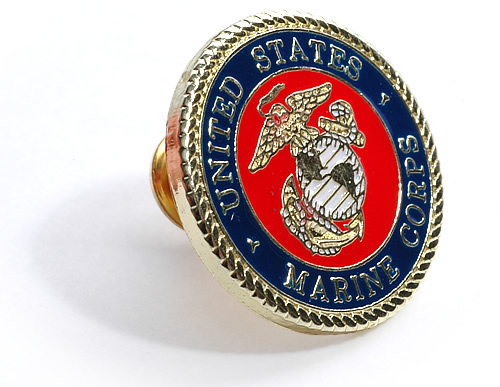Lapel Pins In Today's Society
Lapel pins are everywhere nowadays, you can’t walk down the street
without seeing a man in a suit, or a woman with a jacket , sporting
one. They symbolize charity movements, political views and sometimes
just which high school team you support; yet lapel pins have a rather
military history and it is this origin that still fuels lapel pins
today.
Turning to where they began life during the Civil War, their main use
was to help identify which unit troops belonged to as uniforms tended
to be far more basic than today with unit patches not being a normal
feature. The pins also played a part in trying to boost camaraderie and
loyalty within those units by creating a very obvious shared identity.
Clearly this was a success as pins were seen again during the First and
Second World War. During these conflicts though they came to be used to
reward exemplary service more than simply aid in the identification of
different units. This transition made the lapel pin something that was
much more valued by those to whom they were rewarded who often took to
wearing them in civilian life after the end of the conflict.

Following this move into popular culture the lapel pins soon began to move from a purely military symbol to having more patriotic significance and whereas the wearing of a pin had once meant the belonging to a group it came to symbolize support for the military and the nation at large. At no time was this more obvious than following 9/11 when it seemed the entire nation was sporting a pin in support of a country under attack and a military who were to face a fierce challenge.
Yet from this entirely positive notion of patriotism there emerged a darker side, that of the media and public reaction to those who didn’t wear a pin. A prime example of this is the treatment Obama received pre-election for not wearing a lapel pin as every candidate from Nixon to Bush Jr had done. It was suggested by some that this showed he was not patriotic and did not lover his country. Faced with such criticism one cannot help but me minded of a notion that meaningful actions matter far more than symbolic gestures. If a war veteran did not wear a pin would he be less of a hero? Or if a president didn’t wear one on one day out of a hundred would that make him less of a deserving president? The answer to both of these is a flat no, the pin shows a feeling but it cannot define a man.